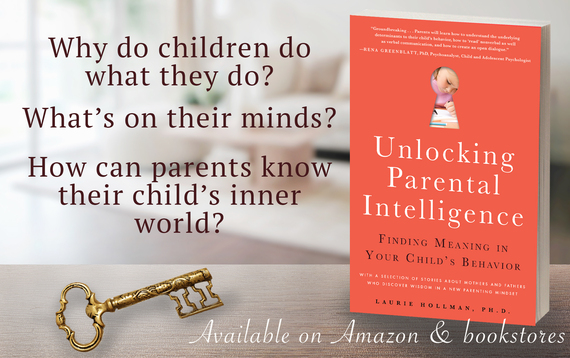School beginning can be both exciting and stressful for parents and kids alike. The most important thing to ease the strain is to be a good, carefully attentive listener. We mostly think about kids listening to us, hearing our advice, reminders, and directions. But to make these instructions most effective, we have to listen to our kids ideas, worries, fears, intentions, beliefs and imaginings about how school will go this year. Listen first. Advise later.
10 Parent Listening Tips
1.If it seems like your child isn't hearing what you say and instead you get rolling eyes, blank stares, and know what you're saying is ignored, that's a clue not to a bad kid, but probably one who's overwhelmed with what's to come as school starts.
Don't take these reactions personally but instead as reminders that your child or teen needs you to listen to what's on their mind before they can really hear what's on your mind.
2.What is your child thinking about? Are they worried about fitting in socially? Friends ' groups may have shifted over the summer or maybe they haven't even visited with school friends for ta few months. They are wondering who will sit with them on the bus, in homeroom, in the cafeteria. Gently suggest this may be on their minds and then just listen. Hold back advice and quick solutions, just ask the child or teen to tell you more and more and more. As you listen, they will feel you care and want to understand them.
3.Listening carefully without quick reactions and advice makes kids feel less alone. They need a sounding board that stays quietly alert while they pour out their feelings about what's to come.
4.A child or teen knows you hear them when you simply paraphrase what they've said or ask a pertinent question that shows you've attended to their details. Your kid will know you're on their side and will advocate for them if needed because you haven't jumped in too fast with your ideas before hearing theirs completely.
5.Have casual conversations so everything about school doesn't feel so serious. Remind them of funny things that happened last year or ask them to tell you what amused them in their classes. Enjoy each other as you chat. Again, your child or teen will feel much less alone about their future prospects.
6.If academics in one or many areas are troublesome for your child. Ask them what they want you to do to help them get off to a good start. Listen if they're worried about being pulled out of class to go to a resource room for reading help for example. Perhaps they want the tutor they had last year for a specific subject or really didn't like that person. Heed the warning and discuss together when and if help might be warranted. Remember this is about listening, problem solving comes later.
7.When you're clothes shopping, take your time. Driving in the car is a good time to promote conversation. Ask your kids what other kids are wearing these days even if you know. If your son prefers a favorite shirt that seems to cement his identity, get a few so you don't have to scramble with the wash to have that one shirt that makes him comfortable always available. Hear your daughter's wishes for skirts or pants. Go with whatever makes her comfortable. She might want to make a statement or blend in. Follow her lead.
8.If you have an introverted, quiet child, make sure to let him or her know it's fine just the way she or he is. There's no reason to expect that being the most gregarious insures popularity. Listen to your child's views on this.
9.Speaking of popularity, as your child talks about friends, remind them gently that it's quality not quantity that makes a good friendship. Loyalty and caring go much further than feeling you have to belong to a large group. As they articulate their feelings, praise them on this ability to talk to openly and empathically about others. This is what socializing is all about.
10.Kids know a listening parent is a devoted parent. They feel trusted and both close to you and independent. You know they'll come to you when needed.
Listening is a parent's art. It takes skill and patience and resilience. It means being flexible when you hear something you didn't expect or feels puzzling and you're not prepared. Just continue to ask for more information and get deeper into the subject if you can. You'll be amazed at how much your child and teen want to confide when they know you aren't going to give quick reactions and fast advice, but that you are an effective listener. That makes an effective parent. Laurie Hollman, Ph.D., is a psychoanalyst and author of Unlocking Parental Intelligence: Finding Meaning in Your Child's Behavior found on Amazon, Barnes & Noble, Familius and wherever books are sold.
Laurie Hollman, Ph.D., is a psychoanalyst and author of Unlocking Parental Intelligence: Finding Meaning in Your Child's Behavior found on Amazon, Barnes & Noble, Familius and wherever books are sold.